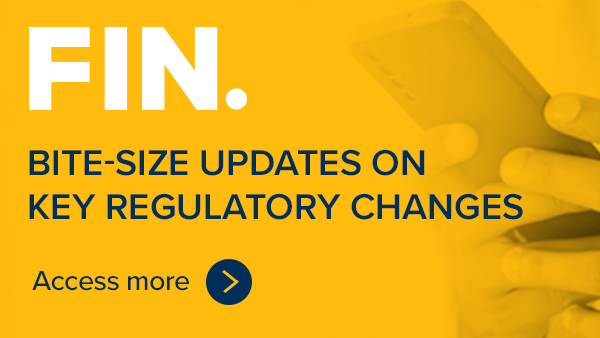
Funeral plan providers and intermediaries will be brought within the scope of FCA regulation from 29 July 2022 and so these firms should now be preparing for the onerous new requirements that will take effect next summer. In this article, Emma Bond and Lucy Hadrill look at the background to the new rules and how firms can get ready for change.
Why the need for change?
Pre-paid funeral plans enable consumers to pay for their funeral upfront or in instalments. Such plans may help to protect them against rising funeral costs since payments will be made at an earlier point in time.
Funeral plan activities are currently exempt from regulation under the RAO meaning that, until now, control over the sector has existed on a voluntary basis via the industry-established Funeral Planning Authority, which produced rules and a Code of Practice for firms to follow.
The demand for funeral plans has grown significantly in recent years and this has led to increasing concerns about the conduct of some providers and the potential for consumer harm in the sector, including:
- Plans that do not meet consumers' needs or expectations
- The use of high-pressure sales tactics by some intermediaries, eg cold-calling of vulnerable consumers who then take out plans which are not suitable for their needs, and
- Poor governance and controls, including oversight of intermediaries.
These concerns led to a government Call for Input in 2018 which sought evidence on the current funeral plan market and how improvements could be made. This was the springboard for a more targeted government consultation in 2019 on the future regulation of the funeral plans market. In January 2021, the government made legislation to bring pre-paid funeral plans within the scope of FCA regulation from 29 July 2022. For consumers, this will mean greater protection, for instance, access to FOS if they wish to make a complaint against a funeral plan provider or intermediary.
What's changing?
Firms who want to carry on providing pre-paid funeral plans after 29 July 2022 will need to apply to the FCA for direct authorisation in respect of one or more of two new permissions (which will appear as new regulated activities in the RAO):
- Entering as provider into a funeral plan contract, and/or
- Carrying out a funeral plan contract as provider.
Alternatively, firms can apply to become an appointed representative (AR) of a principal firm.
Any provider that is not authorised (either directly or as an AR) by 29 July 2022 must cease selling and/or administering funeral plans before the FCA regulation takes effect. This includes firms that want to carry out pre-existing plans. It will be a criminal offence to carry on regulated activities relating to funeral plan contracts without authorisation to do so, unless exempt. Providers who, for whatever reason, will not be authorised by 29 July 2022 should stop selling funeral plans from that date and should transfer their existing books of business to another provider who will be authorised, or wind down their operations.
Once firms are authorised, they will need to comply with the FCA's final rules on the regulation of funeral plans (set out in PS21/15), which aim to ensure that funeral products offered by firms meet consumer needs, are sold fairly and offer fair value. These rules include a new chapter to the FCA's Handbook – the Making the Funeral Plan: Conduct of Business Sourcebook (FPCOB) – which must be adhered to by both providers of funeral plan contracts and intermediaries such as funeral directors, will writers and lead generators.
How can I prepare for regulation?
Funeral plan providers and intermediaries should consider the impact of the new rules on their business, if not already done so, and decide whether they will continue to operate in the market after 29 July 2022. In coming to this decision, there are certain product-specific considerations that providers should be aware of, including:
- Cold-calling will be banned, and there will be new standards on advertising
- Funeral plan instalment products that do not guarantee delivery of a funeral (after a moratorium period) will be banned
- Commission payments to intermediaries will be banned
- Administration and cancellation fees must not be profit drivers
- All products must be backed by an appropriate trust or insurance arrangement
- Firms must ensure that plans can be transferred if the provider fails
- Providers must ensure that there are no terms in the funeral plan contract that limit liability, including via the FSCS, and
- Funeral plan providers must have arrangements in place to reimburse amounts to customers upon insolvency, where a transfer of funeral plan contracts to an alternative provider cannot be arranged.
Providers seeking authorisation should also be mindful of what it will mean to be regulated and the additional requirements this will place on them. For instance, to ensure compliance with regulatory requirements, firms will need to review and enhance their governance and sales processes, including oversight of products, intermediaries, conflicts of interest, risk management and outsourcing.
In terms of regulatory reporting, providers and intermediaries will have to provide 6-monthly prudential returns and an annual complaints return, with providers also being required to provide quarterly conduct returns.
The Senior Managers and Certification Regime (SMCR) will apply to authorised funeral plan providers so firms will need to ensure that Senior Managers are aware of their responsibilities under the regime and that all staff are aware of and appropriately trained on the Conduct Rules.
Firms will also fall under the jurisdiction of FOS and so will need to implement policies, procedures and controls to ensure complaints are recorded and handled appropriately to minimise FOS costs and remediation processes.
How can I apply for authorisation?
The FCA's authorisation window has already opened, so the time to act is now.
Leaving the application for authorisation until the last minute brings the risk that the firm will not be authorised by 29 July 2022, in which case it will have to stop trading whilst the FCA processes its application. If the provider is not authorised by 29 July 2022, it should contact its customers to inform them of the next steps for their plan.
In respect of the application itself, firms will need to decide which of the new permissions they will need to apply for. The FCA will expect firms to provide the following (amongst other things) alongside and in support of their application:
- Evidence that they meet the FCA's Threshold Conditions
- Details of financial resources required and their calculation
- A detailed regulatory business plan: this should include the background to the business and business strategy, the customer base, relevant experience of those who will work for the firm and the background and experience of its directors
- Client onboarding policies, procedures and notifications: including financial crime prevention policies, terms of business, compliance manuals, procedures and monitoring plans, high level governance and systems and controls documents, and
- Details of how they will comply with the new requirements in FPCOB: including restrictions on handling client money, prudential requirements and how they will ensure that the contracts of insurance that are used to back a funeral plan are compliant with the FPCOB requirements.
Firms that are already regulated by the FCA may need to submit a variation of permission application, adding one or more of the new regulated activities to their existing permissions.
A challenge for firms
The new rules clearly present significant new requirements for all affected firms and will take time to bed in. For now though, firms should focus on deciding whether to continue their business beyond 29 July 2022 and, if so, they should be applying to the FCA for authorisation as soon as possible.
This article is for general information only and reflects the position at the date of publication. It does not constitute legal advice.





